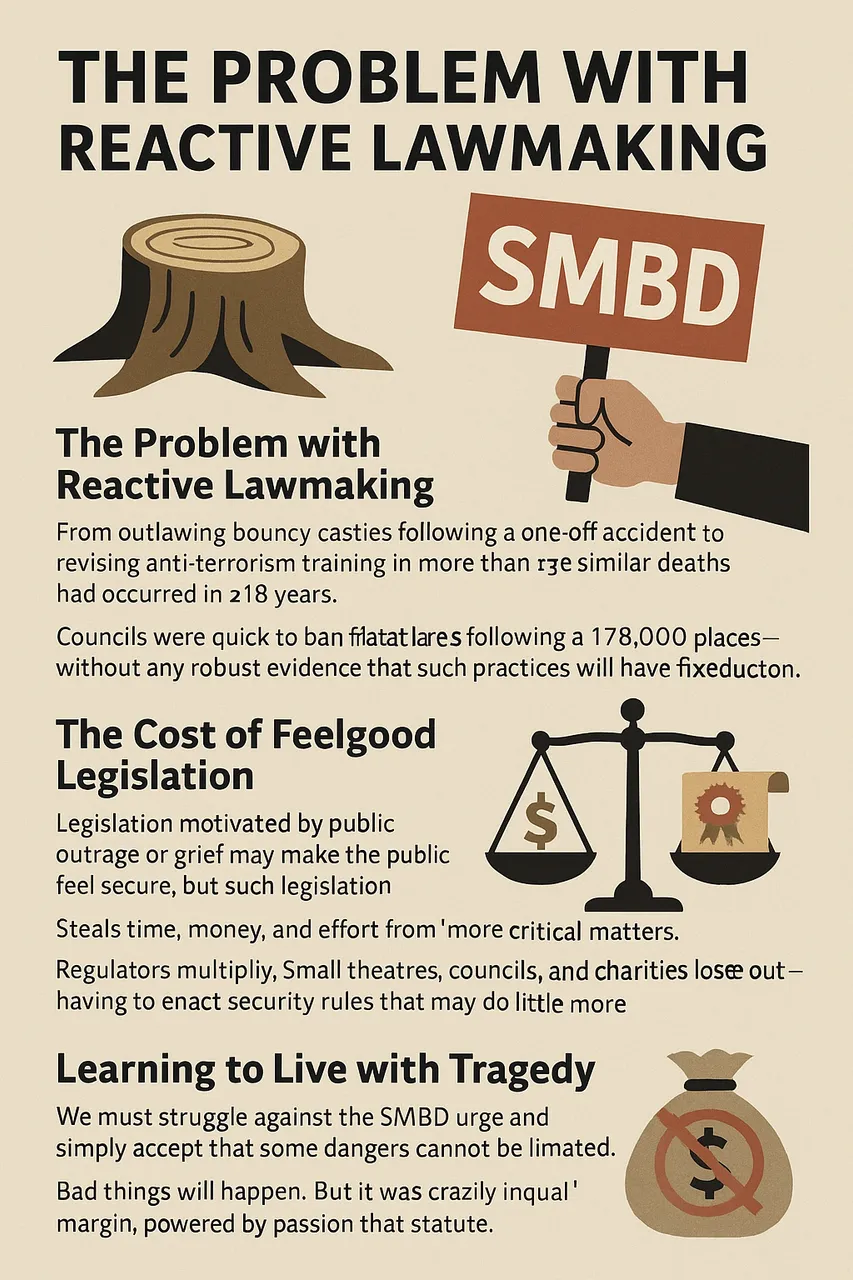When a centuries-old oak tree was recently felled in Enfield, the knee-jerk reaction of many was that "Something Must Be Done" (SMBD),and this usually means calling for new legislation, or what we might call 'reactive lawmaking'...

The Problem with Reactive Lawmaking
Britain has a tendency to over-legislate following unusual occurrences.... Some councils have banned bouncy castles after one off freak accidents and with the recent Taylor-Swift inspired mass murder quiet community halls across the land are reviewing their anti-terror policies.
Martyn's Law, named after one of the Manchester Arena bombing victims, now requires anti-terror training in more than 178,000 places—pubs, schools, churches—without any robust evidence that such practices will have a significant impact on risk reduction.
The government's own impact analysis found that Martyn's Law would cost £1.8 billion over a decade, for an estimated benefit of £20 million. That's a crazily unequal margin. But it was still enacted anyway: passion and emotion rule over impartial policy impact analysis.
The Cost of Feelgood Legislation
Legislation motivated by public outrage or grief may make the public feel secure, but such legislation is they rarely proportional or effective.
Worse, they steal time, money, and effort from more positive initiatives which could benefit thousands.
Legislation also ends up hurting small organizations more as they have to spend a disproportionate amount training staff or modifying buildings to fit in with newly updated safety legislation.
Learning to Live with Tragedy
Personally I think we should resist the SMBD urge and simply accept that some dangers cannot be eliminated. Bad things will happen to us. Good government's task is to accept that fact and focus on doing positive things, not being reactive.
It's no use implementing policy that feels good, and at best accomplishes nothing, at worse actually costs us more!